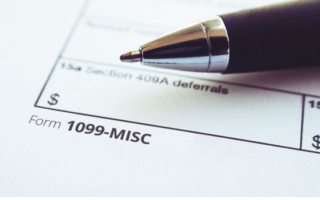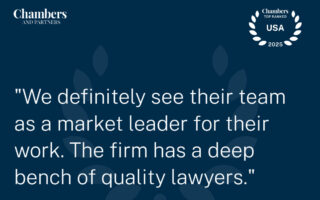The Minnesota Supreme Court Holds the Uniform Arbitration Act Does Not Apply to Appraisals of Property Damage Claims Resulting From Fire
By Christopher L. Goodman • Mar 4, 2020
March 4, 2020 (St. Paul, MN) — The Minnesota Supreme Court has determined the Minnesota Uniform Arbitration Act (“MUAA”), Minn. Stat. §§ 572B.01-31, does not apply to appraisals of property damage claims arising out of the Minnesota Standard Fire Insurance Policy, Minn. Stat. § 65A.01. See Oliver v. State Farm Fire & Cas. Ins. Co., — N.W.2d — (Minn. 2020). As a result of this decision, there is essentially no legislation that governs appraisals of property damage claims resulting from fire.
The MUAA establishes procedures to ensure fair and impartial arbitrations, enforcement of arbitration awards, and enables parties to modify or vacate appraisal awards due to clerical errors or irregularities in the appraisal process. Beginning with a Minnesota Court of Appeals decision from 1985, Minnesota courts have applied the MUAA to appraisals. See David A. Brooks Enterprises, Inc. v. First Systems Agencies, 370 N.W.2d 434 (Minn. App. 1985). Oliver overrules those decisions and disconnects the MUAA procedures that had been applied to appraisals for decades.
The plaintiff in Oliver made a claim against State Farm Fire and Casualty Insurance Company after a fire damaged her Minnesota home. Oliver and State Farm disagreed as to the amount of loss and the claim proceeded to appraisal. The appraisal panel issued an award, State Farm paid the award, then the insured moved to confirm the award and sought preaward interest. State Farm argued that under Minn. Stat. § 572B.24(a), preaward interest was no longer available because the insured did not move for preaward interest within 90 days of the appraisal award. The district court approved the appraisal award but denied the insured preaward interest, reasoning the motion for interest was not timely under the MUAA. The Minnesota Court of Appeals reversed the denial of preaward interest, State Farm petitioned the Minnesota Supreme Court for further review, and the Supreme Court granted the petition.
The issue in Oliver was whether the MUAA, which by its terms applies to “agreements to arbitrate,” applies to appraisals. See Minn. Stat. § 572B.03. The Minnesota Supreme Court determined an appraisal is not an “agreement to arbitrate” and therefore the MUAA does not apply to appraisals. Central to the Oliver decision was the Court’s recognition that an “arbitration” and an “appraisal” are two separate things. Whereas an arbitration is a dispute-resolution process in which the parties select one or more neutral third parties to make a final and binding decision resolving their dispute, and appraisal is simply a means of assessing the worth, value or condition of something.
Oliver will have far-reaching consequences for property damage claims involving Minnesota properties and has the potential to greatly increase the costs associated with such claims, specifically the accrual of preaward interest.
Oliver must be read in conjunction with the Minnesota Supreme Court’s decision in Poehler v. Cincinnati Insurance Company, 899 N.W.2d 135 (Minn. 2017). In Poehler, the Court held that “absent contractual language explicitly precluding preaward interest, an insured may recover preaward interest on an appraisal award for a fire insurance loss.” Id., 899 N.W.2d at 142. Preaward interest is granted under Minn. Stat. § 549.09, which provides for the recovery of preaward interest at the rate of 10% per year on awards in excess of $50,000.
Oliver affirmed the Court of Appeals’ conclusion that appraisal panels lack the authority to grant preaward interest. An insured must therefore bring a claim in district court to recover preaward interest on an appraisal award. But by separating appraisals from the MUAA’s procedural requirements, an insured can wait months—or even years—to seek a judicial grant of preaward interest. Considering interest will continue to accrue at the rate of 10% per year until the award is paid, preaward interest is granted by the district court and paid by the insurer, Oliver has the potential to greatly increase an insured’s exposure for first-party property damage claims.






